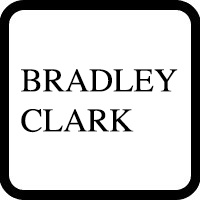Grand Junction Workout Lawyer, Tennessee
Sponsored Law Firm
-
 x
x

Click For More Info:
-
Fitzgerald & Campbell, APLC
400 N. Tustin Avenue Suite 401 Santa Ana, CA 92705» view mapBankruptcy & Debt Lawyers Who Solve Serious Problems
We are a motivated, respected, and experienced law firm that provides affordable services that get results.
800-732-9061
Not enough matches for Grand Junction Workout lawyer.
Below are all Grand Junction Bankruptcy & Debt lawyers.
Bradley Laird Clark
✓ VERIFIEDBankruptcy & Debt
Bradley Clark is a practicing lawyer in the state of Alaska handling Bankruptcy & Debt matters.
Jimmy E. McElroy
Social Security -- Disability, Wills & Probate, Family Law, Criminal, Bankruptcy
Status: In Good Standing
FREE CONSULTATION
CONTACTTerry C. Cox Cox
Federal Appellate Practice, Estate Planning, Elder Law, Reorganization
Status: In Good Standing Licensed: 47 Years
Chase Pittman
Health Care, Federal Appellate Practice, Bankruptcy, Banking & Finance
Status: In Good Standing Licensed: 22 Years
Alan Alsobrook
Bankruptcy & Debt, Business & Trade, Bankruptcy, Credit & Debt
Status: In Good Standing Licensed: 17 Years
Hardin Chase Pittman
Insurance, Reorganization, Civil Rights, Litigation
Status: In Good Standing Licensed: 22 Years
Charles William Rutledge
Wills & Probate, Business, Reorganization, Bankruptcy
Status: In Good Standing Licensed: 49 Years
Chuck Rutledge
Bankruptcy, Banking & Finance, Business & Trade, Commercial Real Estate
Status: In Good Standing Licensed: 49 Years
 Gregory Fitzgerald Santa Ana, CA
Gregory Fitzgerald Santa Ana, CA AboutFitzgerald & Campbell, APLC
AboutFitzgerald & Campbell, APLC Practice AreasExpertise
Practice AreasExpertise

